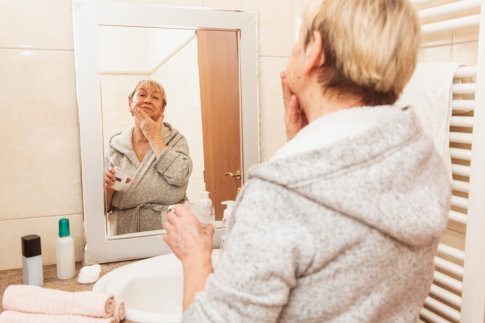As people age, skin production of natural oil diminishes. Eventually, the skin becomes dry and flaky. It often cracks; permitting bacteria to penetrate through the cracks and infect the underlying tissue. Being infected, the skin typically becomes inflamed and itchy.
For most people, the first thing that they do is scratch where it itches. Inevitably, repeated scratching will cause more tissue damage and is likely to worsen the infection. It may also result in an open wound which makes care more challenging.
Applying lotion and moisturizers regularly, especially after bathing or showering, does help skin remain hydrated and healthy. However, if irritation, itch, or rash develops despite regular moisturizing, then medicated ointments, lotions or powders may be applied to reduce these symptoms. Caregivers are expected to obtain direction from Nurse Case Managers before applying medicated topicals.
Older adults, who can no longer care for themselves, usually rely on family or professional caregivers to assist with skin care. In both Vermont and New Hampshire there are many older adults without family available. In these cases, the assistance of professional caregivers will ascertain that the older adult’s personal skin care is well executed. Aside from applying moisturizers, caregivers will also ascertain that the older adult is well hydrated and well nourished. Both conditions bode well for skin integrity.
If you want more information about proper skin care or to inquire about home care services or if you are interested in work as a Vermont or New Hampshire caregiver, contact TLC HomeCare today. Remember, skin is the first natural barrier against infection, and it deserves constant attention.
